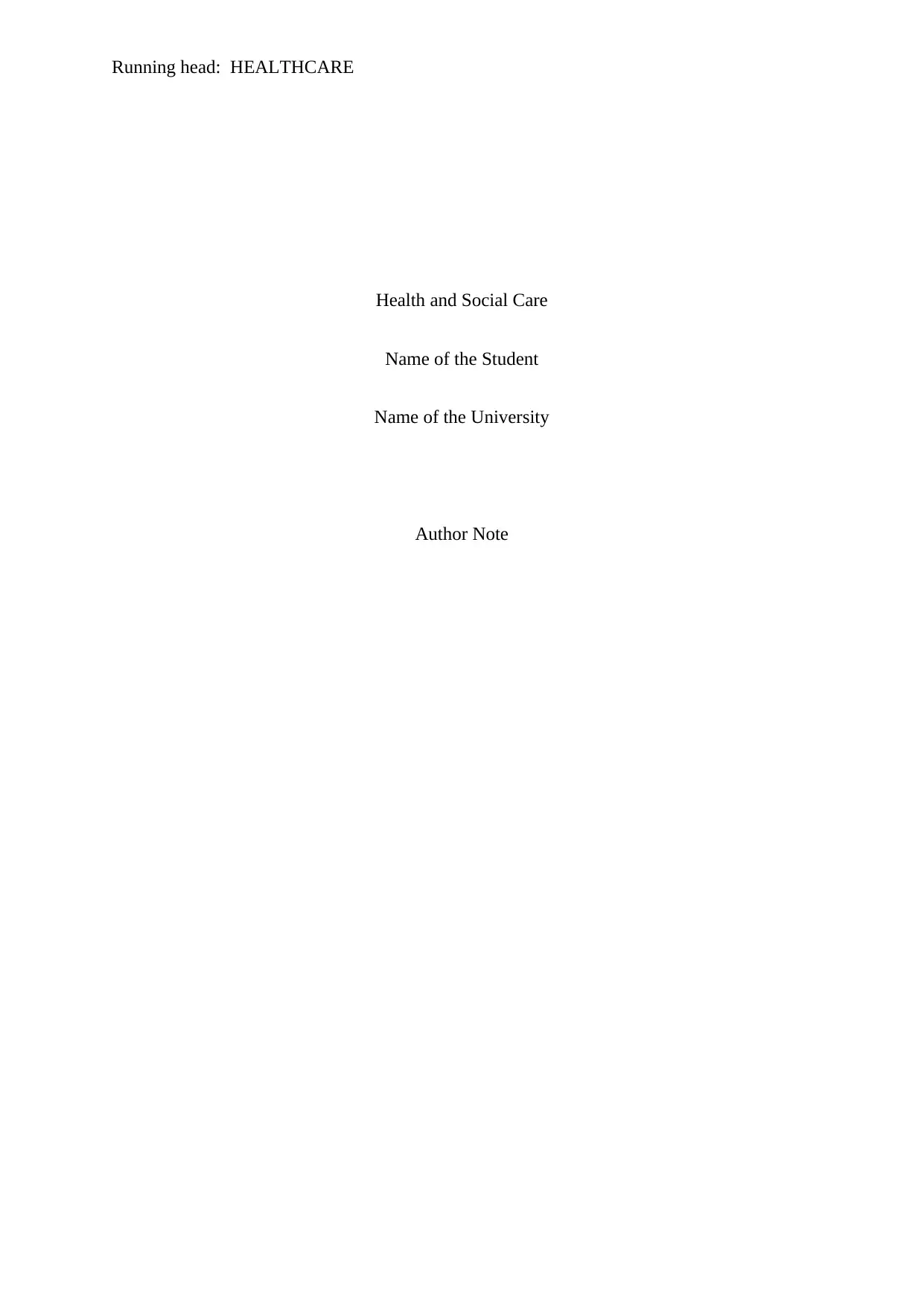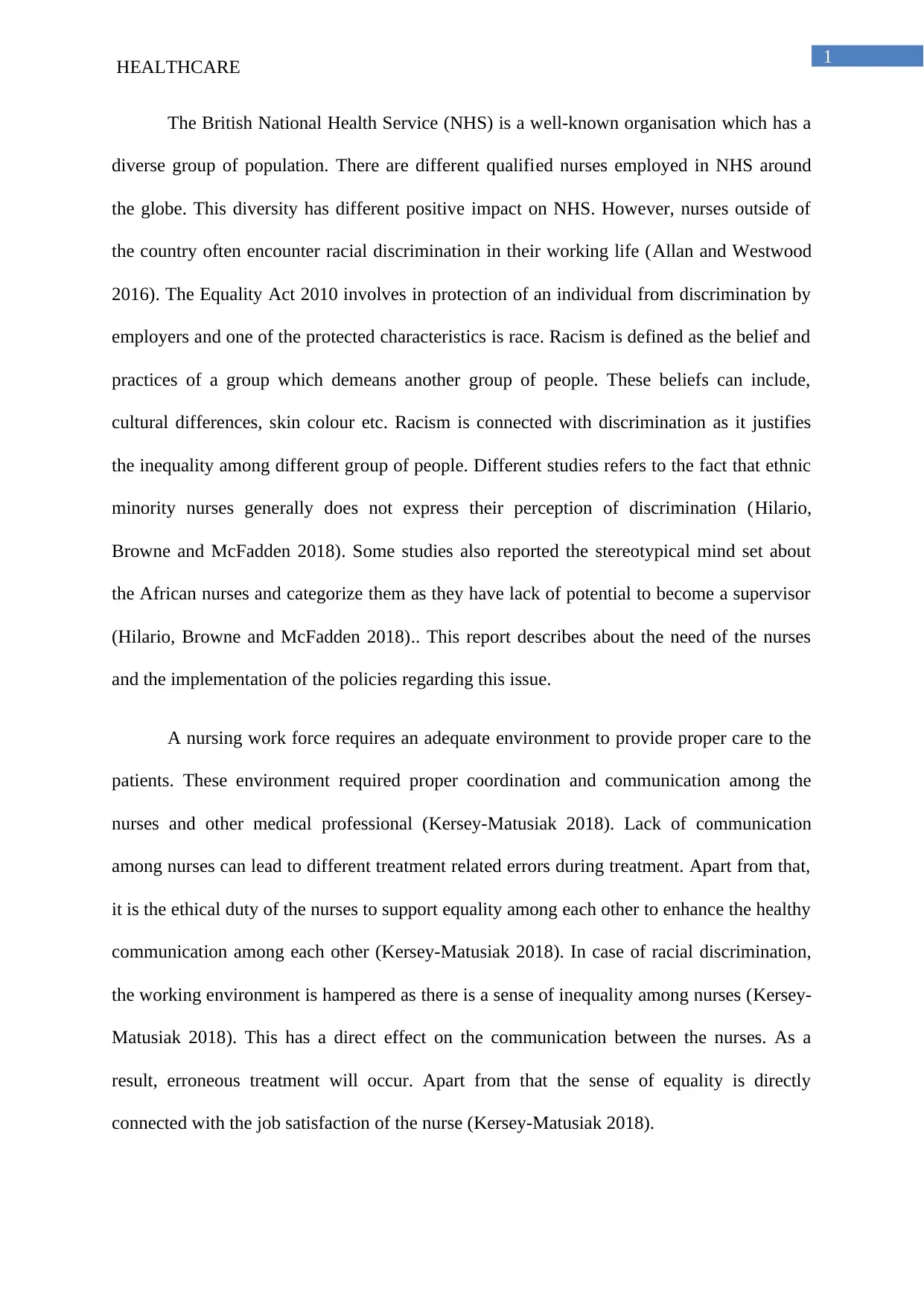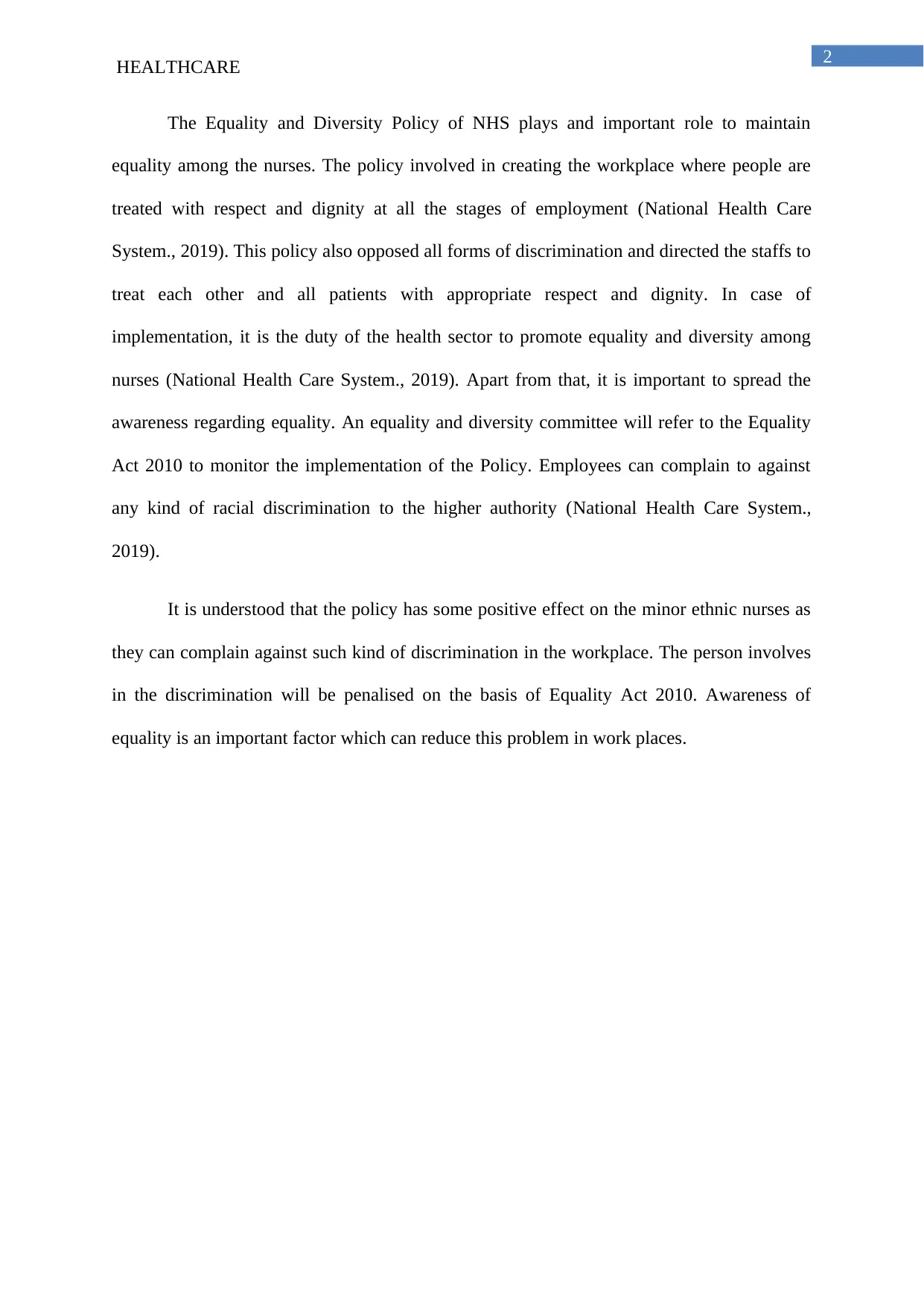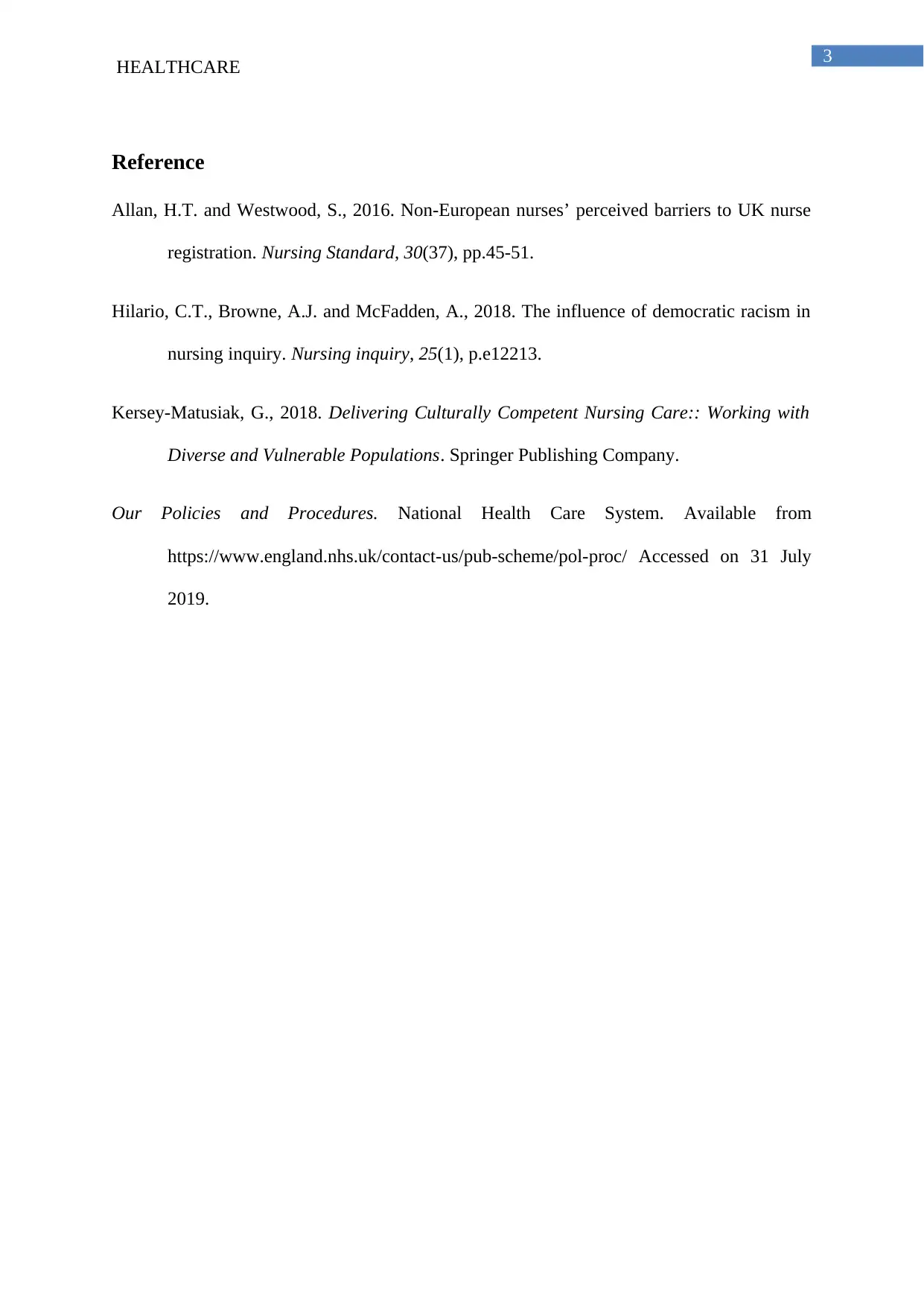University Healthcare Racial Discrimination in NHS Report
VerifiedAdded on 2022/10/12
|4
|713
|251
Report
AI Summary
This report addresses the issue of racial discrimination within the National Health Service (NHS), focusing on its impact on nurses, particularly those from ethnic minority backgrounds. It references the Equality Act 2010 as a crucial legal framework for protecting individuals from discrimination in the workplace, emphasizing the negative effects of racism on nurses, including reduced job satisfaction and impaired communication, potentially leading to treatment errors. The report examines the role of NHS policies, such as the Equality and Diversity Policy, in fostering a respectful and equitable work environment. It underscores the importance of promoting awareness and establishing committees to monitor policy implementation, allowing employees to report instances of discrimination. The report concludes that awareness of equality is an important factor which can reduce the problem in workplaces, and emphasizes the importance of creating an environment where all nurses are treated with dignity and respect.
1 out of 4










![[object Object]](/_next/static/media/star-bottom.7253800d.svg)